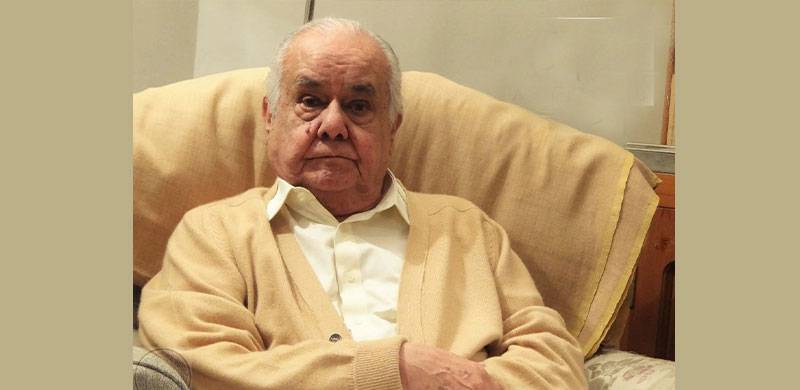In the passing away of Humayun Khan, former foreign secretary of Pakistan and Islamabad’s envoy to New Delhi, the Indian Subcontinent has lost a wise, almost sagely soul, who was also a “formidable diplomat, a thinker of high calibre and a genuine humanist,” as former Pakistani Senator (and current leader of the Pashtun Tahafuz Movement), Afrasaib Khattak, described him. Khan was a Pashtun in the mould of the “frontier” Gandhi, Badshah Khan, rather than the usurpers of Pashtunwali, the dreadful Taliban. He was, above all, a passionate believer in India-Pakistan dosti.
Khan understood that long-term realism in South Asia demands moving beyond the tactical and looking forward towards a common and secure future. In the last decades of his full and varied life, he devoted himself to his two passions — the cause of India-Pakistan peace and rural development, especially to ensure the sustainable development of the people of his beloved Khyber Pakhtunkhwa.
For Humayun “Lalla”, the essence of the problematique of India-Pakistan relations was simple: India must have a larger heart and Pakistan must develop a more thoughtful head. If an expansive heart of India met the sensitive spirit of Pakistan, no problem would be too difficult to resolve. Unfortunately, he did not live long enough to see this dream translate into reality.
Even his formidable adversaries within the Indian establishment spoke of his generosity, in thought and action. The former Indian High Commissioner to Pakistan, Gopalaswamy Parthasarthy, often seen as a hardliner, happily admitted to me that Khan “was a class apart”. Parthasarthy and Khan had co-authored a book,
Diplomatic Divide, reminiscing about their lives in Islamabad and New Delhi, respectively.
Khan belonged to a distinguished Pashtun family of Peshawar and had his early education as a boarder at Bishop Cotton School,
Shimla, and then went to earn a tripos from Trinity at Cambridge. Subsequently, he joined the Civil Service of Pakistan and served primarily in the Northwest Frontier (now Khyber Pakhtunkhwa) including as Political Agent in Malakand and North Waziristan and then as Home Secretary for the Province.
In the 1970s was Khan first seconded to and then permanently absorbed in the Pakistan foreign service serving as its High Commissioner in Bangladesh and then India before being promoted and superannuating as Foreign Secretary. In the early 1990s, he served as Pakistan’s High Commissioner to the United Kingdom. TCA Raghavan, India’s High Commissioner to Islamabad from 2013-2015, described Khan as a “mentor and friend”.
The high point of Humayun Khan’s tenure was his four-year stint as High Commissioner to India, from 1984-1988 and as Foreign Secretary for less than a year thereafter. As High Commissioner, he arrived in New Delhi in the last months of Indira Gandhi’s tenure as Prime Minister and stayed through the initial bonhomie of the Rajiv Gandhi-Benazir Bhutto diplomatic honeymoon and presided over the twists and turns during that intriguing period in bilateral relations.
When Khan called on Mrs Gandhi, he found that, not surprisingly, she did not like General Zia-ul Haq but she reserved real animosity for Zulifiqar Ali Bhutto. This was because the bitterness that she still nursed about the betrayal at Shimla. As is well known, ZAB had agreed at Shimla to converting the Line of Control into the international border but wanted time to “prepare his people” before signing a formal agreement. In Mrs Gandhi’s view, ZAB did a complete U-turn once he returned to Pakistan from Shimla.
One of the most enduring bilateral agreements between India and Pakistan, “The Agreement on the Prohibition of Attack Against Nuclear Installations and Facilities – the Non-Attack Agreement”) was signed by Khan and his Indian counterpart, K P S Menon, on December 31, 1988.
A notable failure during Khan’s tenure as Foreign Secretary was the inability to arrive at an agreement and disengage at the Siachen glacier. Both Rajiv Gandhi and Benazir Bhutto, seeking a major foreign policy success (Rajiv Gandhi particularly after the fiasco in Sri Lanka and Nepal) had apparently personally intervened to give “political clearance” to a plan to demilitarise Siachen but the agreement fell apart after meeting strong opposition from the Indian armed forces, unwilling to move out of the dominating heights of the Saltro ridge.
My personal relationship with Humayun “Lalla” evolved while chairing for a decade the only meaningful Track 2 dialogue with the blessings of the top leadership on both sides. His was a voice of reason, of restraint, of moderation and nuance and he brought with him the highest drafting skills when demanded.
I hosted him as Vice Chancellor at
Jammu, and I remember him talking about
izzat as being at the heart of Pashtunwali. “All of us in South Asia are driven by our honour. The
izzat you have conferred on me today, Amitabh, has overwhelmed me – there is very little I will not do for you! Imagine the consequences if our beloved countries can just learn to respect each other.”
The writer, at JNU and an honorary professor at the University of Melbourne, founded and co-chaired the now disbanded Chaophraya dialogue for over a decade 

